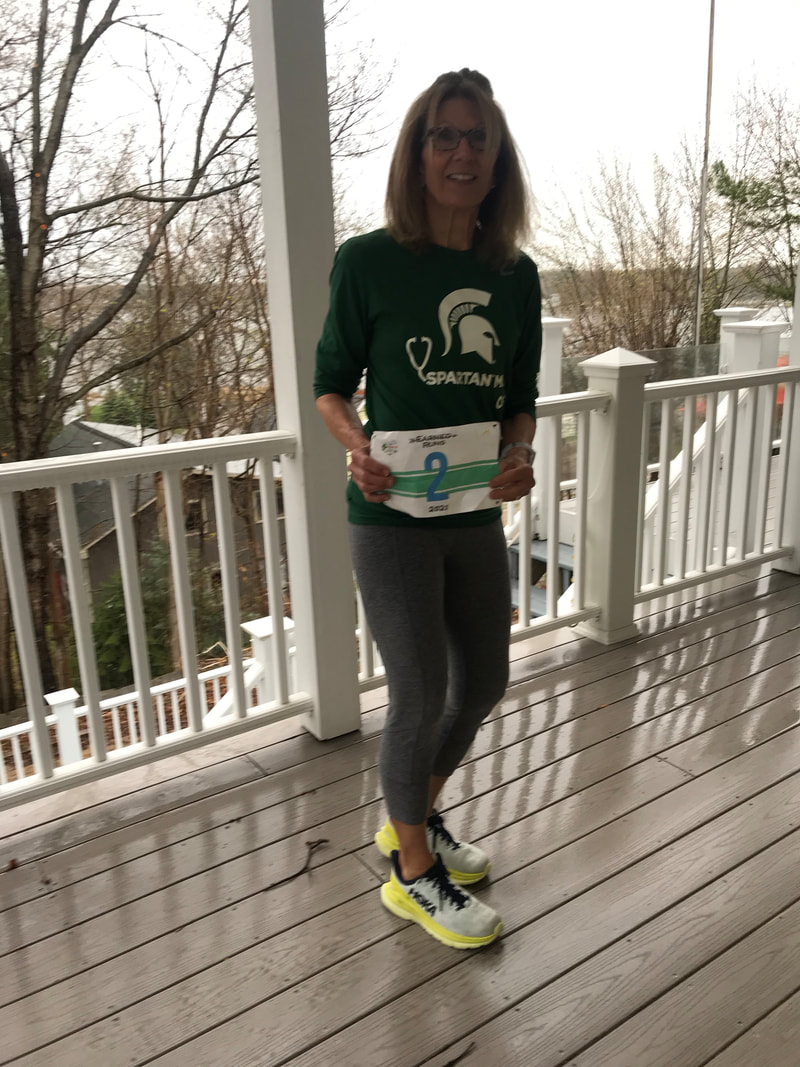BLOG
|
|
TO RUN WE RELY ON HEALTHY LUNGS. With aging, we expect to deal with stiffer limbs, degeneration of the joints, and less muscle/more fat mass. By not smoking, avoiding polluted air, and improving cardiorespiratory fitness with aerobic exercise, we hope to keep our lungs in as good a condition as possible.
A study recently published in the American Journal of Respiratory and Critical Care Medicine of the American Thoracic Society has revealed we might not be protecting our lungs from long term damage. Especially women who regularly clean house as little as once a week. The headline to come out of the press release announcing the study results is that the use of household cleaning products for 20 years may be as detrimental to lung health as smoking a pack of cigarettes each day, during that length of time. An article by Tom Porter for Newsweek.com, highlights the findings of research performed by scientists at the University of Bergen in Norway. The details of the scientific article "Cleaning at home and work in relation to lung function decline and airway obstruction" by Ø Svanes and colleagues are summarized below. Over 20 years, 6230 participants from 22 different European centers, representing random population samples of women and men, aged 20-44 years (mean age 34 at baseline; 1992-1994), were studied. The participants were surveyed at baseline and re-investigated again in 1998-2002, and 2010-12 by the research team. Each survey involved interviews, lung function testing, and body measurements. Information was collected by questionnaire as to whether each person was cleaning, and how often (more than once per week) and what type of products were used (spray or non-spray cleaning agent). About 85% of women and 47% of men reported cleaning at home; roughly 9% and 2% reported cleaning occupationally. Women not working as cleaners and who did not clean at home had the lowest decline in lung function over the study period. Women who cleaned on the job and at home had the highest decline. Among women, the use of sprays or other non-spray cleaning products at least once per week was associated with an accelerated decline in lung function as compared to not performing cleaning. Men did not show this decline pattern. More women cleaning at home and at work had more doctor-diagnosed asthma than those not cleaning. Men who cleaned at home had more doctor-diagnosed asthma than those not cleaning and those cleaning at work. The researchers suggested that detrimental lung changes might occur with repeated small exposures to agents, like ammonia and bleach, that irritate the mucous membrane lining of the respiratory tract and lead to fibrosis and other alterations inside the walls (interstitium) of delicate lung structures. Other agents might sensitize the tissue to immune reactions and lead to airway remodeling. The study admittedly has limitations, including the small number of women who reported not cleaning more than once a week, and the small number of men who reported they were occupational cleaners. Before getting into a war with men over who suffers from being designated cleaners at home, consider that gender differences in response to agents may exist. And occupational cleaning for men may involve different work. Should women stop cleaning at home and work to protect their lungs? The results of this study might cause us to examine more closely how house-cleaning is accomplished, consider the kinds of materials used to construct homes/buildings, and the use of protective gear. Flooring that cleans with simple wiping or mopping with water could be a better choice than that requiring harsh chemicals. Home-recipe cleaning agents and micro-fiber cloths that are kind to the earth’s environment and human physiology might be promoted. Perhaps mask-wearing could decrease inhalation risk. It’s discouraging to think that in spite of decades of regular aerobic exercise, my lung function might have declined more than what would have normally occurred due to aging because of house cleaning. It might have been prevented. And that exposure to chemicals at work would have caused additional harm. Going forward I’m going to try to only use mild cleaning agents that can be made from water, vinegar, baking soda, lemon juice etc.! RUN & MOVE HAPPY! https://www.ncbi.nlm.nih.gov/pubmed/29451393 http://www.newsweek.com/impact-cleaning-products-lung-health-bad-20-day-cigarette-habit-study-810277 Note: some of the homemade solutions on these two websites seem to be lung friendly; they are just an example. http://eartheasy.com/live_nontoxic_solutions.htm http://www.goodhousekeeping.com/home/cleaning/tips/a24885/make-at-home-cleaners/
1 Comment
Geri
3/2/2018 01:58:11 pm
I didn't know whether to shout for joy (no more cleaning!!) or say Oh No because I really take pleasure in cleaning. Recently I spent the last month decluttering one of my closets (followed Marie Kondo's book ), and yes, bleach was involved. However, I worry more about the children who spend hours in swimming pools as an after school activity or on a team. They're exposed to and breathe in quite a bit of chlorine fumes. Can't be good for them either.
Reply
Your comment will be posted after it is approved.
Leave a Reply. |
BRIDGE TO PHYSICAL SELF
Running, walking, and fitness activities enable us to experience our physical selves in a world mostly accessed through use of fingers on a mobile device. AuthorEARNED RUNS is edited and authored by me, runner and founder. In 1978 I began participating in 10K road races before 5Ks were common. I've been a dietitian, practiced and taught clinical pathology, and been involved with research that utilized pathology. I am fascinated with understanding the origins of disease as well as health and longevity. Archives
November 2023
CategoriesNew! Search Box
Earned Runs is now searchable! Check it out...
|


 RSS Feed
RSS Feed